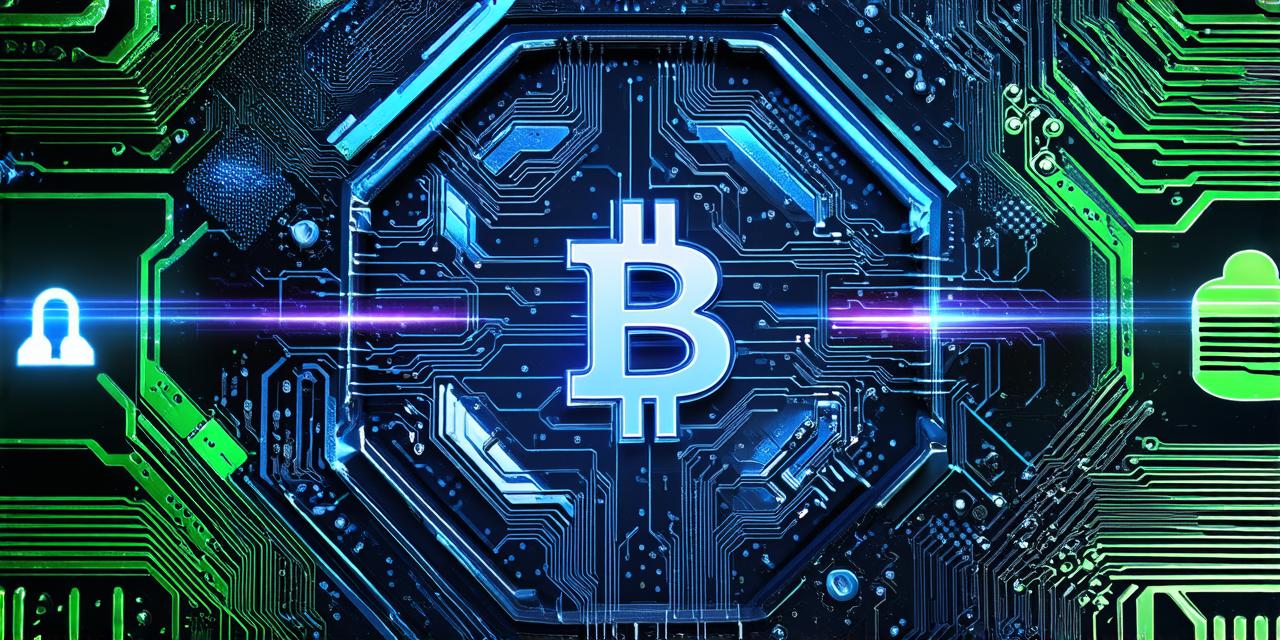What is Blockchain?
Before diving into blockchain’s role in cybersecurity, it’s essential to understand what blockchain is. In simple terms, blockchain is a decentralized database that records transactions on multiple computers. Each block of data contains a cryptographic hash and a timestamp, which makes it virtually impossible to alter or delete the information.
Blockchain in Cybersecurity
Now that we have a basic understanding of blockchain let’s explore how it can enhance cybersecurity measures. Blockchain technology has several features that make it an ideal solution for protecting sensitive data. Here are some of the key benefits:
Decentralization
As mentioned earlier, one of the significant advantages of blockchain is its decentralized nature. The lack of a central authority controlling the network means that there is no single point of failure. In the event of an attack, the network can continue to function without interruption, minimizing the impact of the attack.
Immutability
The use of cryptographic hashes and timestamps makes it virtually impossible to alter data once it’s added to the blockchain. This feature ensures that data is secure and cannot be tampered with by unauthorized parties.
Transparency
All transactions on the blockchain are publicly visible, making it easy to trace the movement of data. This transparency helps prevent fraudulent activities and ensures that all parties involved in a transaction have access to the same information.
Security
The use of cryptographic algorithms makes it difficult for hackers to gain unauthorized access to the blockchain. Even if they manage to breach the network, they will not be able to alter or delete data once it’s added to the blockchain.
Real-Life Examples
Now that we have discussed the benefits of blockchain in cybersecurity let’s look at some real-life examples to illustrate its potential:
Bitcoin
Bitcoin is undoubtedly one of the most well-known applications of blockchain technology. The cryptocurrency uses a decentralized network to enable secure and transparent transactions between individuals without the need for intermediaries like banks.
Ethereum
Ethereum is another popular application of blockchain technology that has gained significant traction in recent years. The platform enables developers to build decentralized applications (dApps) that can be used for various purposes, including supply chain management and voting systems.
IBM Food Trust
IBM Food Trust is a blockchain-based solution designed to enhance food safety and traceability. The platform uses a decentralized network to track the movement of food products from farm to table, ensuring that consumers have access to safe and high-quality food products.

FAQs
Now that we have discussed blockchain’s role in cybersecurity let’s answer some frequently asked questions:
1. What is blockchain technology?
Blockchain technology is a decentralized database that records transactions on multiple computers using cryptographic algorithms.
2. How does blockchain enhance cybersecurity measures?
Blockchain’s decentralization, immutability, transparency, and security features make it an ideal solution for protecting sensitive data.
3. What are some real-life examples of blockchain in cybersecurity?
Some real-life examples of blockchain in cybersecurity include Bitcoin, Ethereum, and IBM Food Trust.
4. How does blockchain differ from traditional databases?
Blockchain is a decentralized database that records transactions on multiple computers using cryptographic algorithms, whereas traditional databases are centralized and controlled by a single authority.
Summary
In conclusion, blockchain technology has significant potential in enhancing cybersecurity measures. Its decentralization, immutability, transparency, and security features make it an ideal solution for protecting sensitive data. As the technology continues to evolve, we can expect to see more real-life examples of its application in various industries. It’s essential for organizations to stay up-to-date with emerging technologies like blockchain to ensure that they are adequately protected against potential threats.
